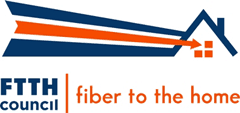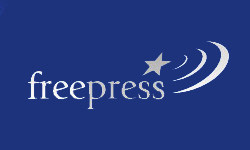 Outside of a handful of consumer groups, just about everyone — including one “anti-tax” Republican on the Federal Communications Commission — favors the imposition of a new broadband tax on your Internet connection.
Outside of a handful of consumer groups, just about everyone — including one “anti-tax” Republican on the Federal Communications Commission — favors the imposition of a new broadband tax on your Internet connection.
It is all a part of the Federal Communications Commission’s effort to transform a badly-outdated Universal Service Fund (USF) into the Connect America Fund (CAF) — an ongoing project to help defray the costs of wiring rural America for broadband service.
Phone and cable companies are on board. So are several state regulators. Even search engine giant Google favors applying a surcharge to consumer bills to retire a funding formula currently dependent on declining landline phone revenue.
In April, the FCC began accepting comments on its proposal to expand the number of telecommunications services subject to the surcharge, currently found on telephone bills. The FCC has proposed a number of possible taxes including the new broadband fee, a tax on text messages, or moving to a flat fee for each phone line instead of a variable tax rate (currently around 18%).
Virtually every major telecommunications company provisionally supports the new tax, for at least three reasons:
- Most can benefit from future CAF funding opportunities, dipping into the fund to help subsidize expanding broadband into areas where current “return on private investment”-standards make deployment unprofitable;
- Consumers will pay the tax, not providers;
- The companies are confident their fierce lobbying will get the FCC to drop a proposed requirement the fee be included in the advertised price of broadband service. They want the fee broken out separately on customer bills, in part because they fear higher-advertised-prices for broadband will discourage customers from buying.
 Google also supports the new tax because they profit from a larger broadband audience accessing their web pages and services. If the FCC were to tax online services, as Google fears, it would be bad news.
Google also supports the new tax because they profit from a larger broadband audience accessing their web pages and services. If the FCC were to tax online services, as Google fears, it would be bad news.
“Saddling these offerings with new, direct USF contribution obligations is likely to restrict innovative options for all communications consumers and cause immediate and lasting harm to the users, pioneers, and innovators of Internet-based services,” Google argued.
The Fiber to the Home Council, another industry group, was disturbed by one FCC proposal that would levy an increasingly higher percentage of the new tax on customers with progressively faster high speed connections. Although the Council agreed with many consumer groups that any new broadband tax would discourage broadband adoption, it was alarmed with the proposition of taxing consumers the most for selecting the highest speed broadband tiers.
“The Commission should not impose a fee that increases with greater performance capabilities (capacity/speed) because that would discourage plant and service upgrades and hinder the expansion of critically important high-speed broadband services,” the Council wrote in its comments to the FCC.

The Fiber to the Home Council is concerned about one proposal that would levy increasingly higher taxes the higher your connection speed.
With 19 million Americans currently unable to obtain broadband service, adding a new tax on existing broadband customers’ bills would bring in millions that the CAF will ultimately award to rural landline providers and cable operators to encourage them to expand their broadband networks.
But consumer groups including Free Press worry the new tax would rob Peter to pay Paul, and further discourage poor Americans who can’t afford current broadband prices from ever signing up for service.
“In other words, as the Commission reforms the overall USF system in the name of greater broadband adoption, particularly among rural, poor and elderly consumers, assessing [a broadband tax] could lead to an overall lower level of broadband adoption, despite the availability of new broadband subsidies,” writes Free Press research director S. Derek Turner in an official filing with the FCC.
Free Press called the current comments from industry players largely as expected.
“Industry commenters simply offered self-serving proposals that will ensure that their (but not necessarily their customers’) contribution burdens are as low as possible,” Turner wrote. “We instead are strongly encouraging the Commission to conduct actual cost-benefit analysis prior to adopting rule changes that could have massive unintended consequences for consumers.”
Outside of a small handful of remarks from end users, the overwhelming majority of comments received by the FCC are from providers, industry groups, and telecommunications regulators. Almost none come from actual consumers, who will ultimately pay the proposed tax.
Some conservative anti-tax groups have been alarmed by the tax expansion and Republican FCC Commissioner Robert McDowell’s apparent support of it. McDowell issued a statement in April declaring his support for reform of the USF system to broaden the tax to additional telecommunications users:
[…] “To put the importance of contribution reform into perspective, the contribution factor, a type of tax paid by telephone consumers, has risen each year from approximately 5.5 percent in 1998 to almost 18 percent in the first quarter of this year. This trend is unacceptable because it is unsustainable. Furthermore, the cryptic language on consumers’ phone bills, combined with the skyrocketing “tax” rate, has produced a new form of “bill shock.” We must tame this wild automatic tax increase as soon as possible.
[…] “Controversy, however, should not deter us from lowering the tax rate while broadening the base according to the authority granted to us by Congress. The current pool of contributors is shrinking. It must be expanded, but we must do so only within our statutory authority while keeping in mind the international implications of our actions.”


 Subscribe
Subscribe

But, everyone will know exactly where the tax money should be spent.
I heard an interesting analogy: the government does not require grocers to surcharge our grocery purchases in order to fund food stamps.
Food stamps are funded out of general taxes. So why are telephone customers surcharged to support universal POTS (and now broadband) service?
If the people of this country honestly believe that everyone should have access to affordable broadband, then fund such access out of general taxes the same way food stamps are funded.